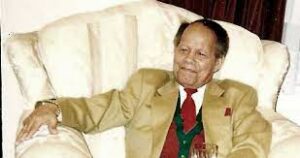Booker T Washington
Booker T Washington was the founder of the new Tuskegee Institute, created for the higher education of Black people. In addition to acquiring his own education after being freed from slavery, he became a teacher, writer, politician and voice for AfricanAmericans.
5 April 1856
14 November 1915
USA Virginia
African American
Booker T Washington was born as an enslaved boy working on a plantation with his mother Jane, who worked as a cook for James Burroughs, the plantation owner. Washington’s father was an unknown white man, speculated to be from a neighbouring plantation.
After his release from slavery in 1865 under the Emancipation Proclamation (Proclamation 95 by Abraham Lincoln stating that all slaves were to be legally free ) he moved to West Virginia with his mother. Here they met Washington Ferguson who had escaped from slavery during the Civil War and settled there. After his mother’s marriage to Washington Ferguson, Booker adopted his surname after his stepfather and readopted ‘Taliaferro’ as his second name, having learned his birth name from his mother. Slaves did not use their birth names. This was the name Washington kept from the age of nine for the remainder of his life
Washington taught himself to read and write whilst working in salt furnaces and coal mines to earn enough money to educate himself. He went to Hampton Institute and graduated in 1875, later attended Wayland Seminary (Washington DC) in 1878.
1881
Washington was recommended by Samuel C Armstrong, the Hampton Institute President, to be the first leader of Tuskegee Normal and Industrial Institute (later named Tuskegee Industrial, now known as Tuskegee University), a college for teacher training. The school opened on 4 July 1881 after the Alabama Legislature granted it $2,000 . Washington had to travel around the countryside promoting the school to raise money for its relocation from an old church.
1882
Washington bought a former plantation to repurpose as the permanent campus of Tuskegee University. The school’s campus was built by the students. Under the guidance of Washington they made the bricks to construct the classrooms, built barns and outbuildings, and even raised livestock and planted their own crops.
1915
At this point in time the Tuskegee had more than 100 buildings and 200 faculty members teaching 38 different trades and professions.
Due to Washington’s position he gained a lot of support, including ministers, Black educators, editors and businessmen. This allowed Washington to access high-ranking white philanthropists and politicians, raising large amounts of funding.
1896 – Honorary degrees from Harvard University
1901 – Honorary degrees from Dartmouth College
Links to wider Resources:
https://en.wikipedia.org/wiki/Booker_T_Washington – last edited ,February 11 2020
https://www.biography.com/activist/booker-t-washington- – last edited, April 23, 2021
Credits (where info sourced from) Photo:
Time Life Pictures/Library Of Congress/The LIFE Picture Collection via Getty Images

